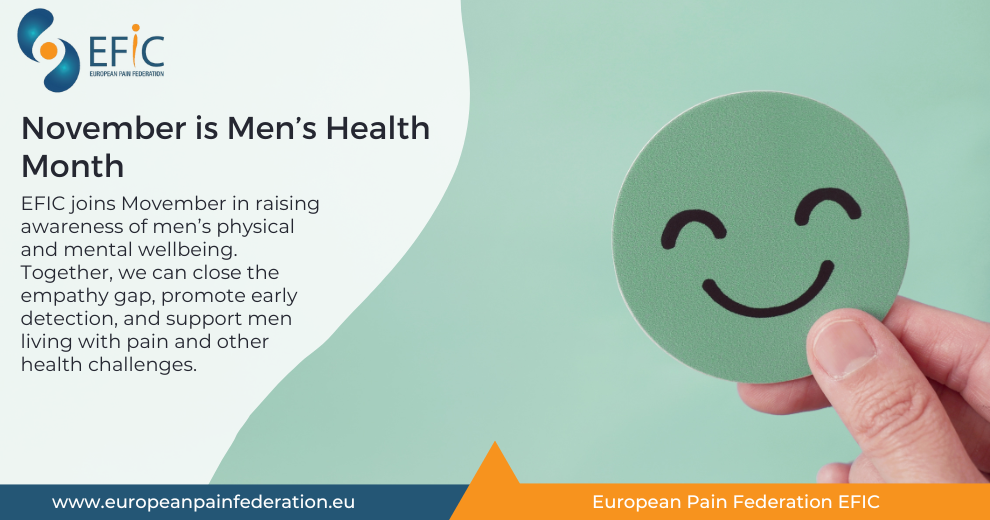Movember and Men’s Health Awareness: Closing the Empathy Gap
While Men’s Health Month is officially recognised each June to raise awareness of preventable health issues and promote early detection and treatment among men, November has become synonymous with Movember, a global campaign focusing on men’s mental health, suicide prevention, prostate cancer, and testicular cancer.
This year’s message, “Closing the Empathy Gap”, highlights the urgent need to address the disparities in care, awareness, and support that affect men’s wellbeing. Despite living, on average, six years less than women, men are less likely to seek help or talk about their health challenges, from chronic pain to depression.
Key Statistics:
-
Men are nearly four times more likely to die by suicide than women.
-
Prostate cancer is the second leading cause of cancer death in men.
-
Testicular cancer is the most common cancer in young men aged 15–35.
-
Mental health disorders affect 1 in 8 men globally, with many going undiagnosed or untreated.
Pain and Men’s Health
Pain plays a major role in men’s health. Prostate cancer treatments and other long-term conditions can cause chronic pain, affecting both physical and emotional wellbeing. In turn, mental health challenges such as depression and anxiety can intensify pain perception, creating a cycle that requires understanding, empathy, and comprehensive care.
Supporting Men’s Health
Healthcare professionals, employers, and communities can make a difference by:
-
Encouraging open conversations about mental health and chronic pain.
-
Promoting regular check-ups and early detection of health issues.
-
Providing resources for managing chronic pain and mental health conditions.
-
Challenging stigma and traditional views of masculinity that discourage help-seeking behaviour.
By recognising both Men’s Health Month in June and Movember in November, EFIC supports ongoing efforts to improve men’s health through awareness, research, and compassion: Helping men live longer, healthier, and more fulfilling lives.
EFIC Resources:
-
Joint Statement on Pain & Mental Health: A joint statement and policy resource exploring the inter-relationship of chronic pain and mental-health conditions.
-
SIP National Platform Network Toolkit: Part of the Societal Impact of Pain (SIP) network, which highlights chronic pain as a public-health indicator and promotes recognition in healthcare systems.
-
EFIC On The Move: A campaign focussing on physical activity’s role in preventing chronic pain and supporting general health and wellbeing.
Scientific content
Keogh E, Boerner KE. Exploring the relationship between male norm beliefs, pain‐related beliefs and behaviours: An online questionnaire study. European Journal of Pain. 2020 Feb;24(2):423-34.
Cimas M, Ayala A, Sanz B, Agulló‐Tomás MS, Escobar A, Forjaz MJ. Chronic musculoskeletal pain in European older adults: Cross‐national and gender differences. European Journal of Pain. 2018 Feb;22(2):333-45.
Ekholm O, Herling SF, Lykke C, Skurtveit S, Hamina A, Sjøgren P, Kurita GP. Monitoring Chronic Non‐Cancer Pain in Denmark Over Two Decades: Prevalence, Mental Health and Loneliness. European Journal of Pain. 2025 Feb;29(2):e4776.
